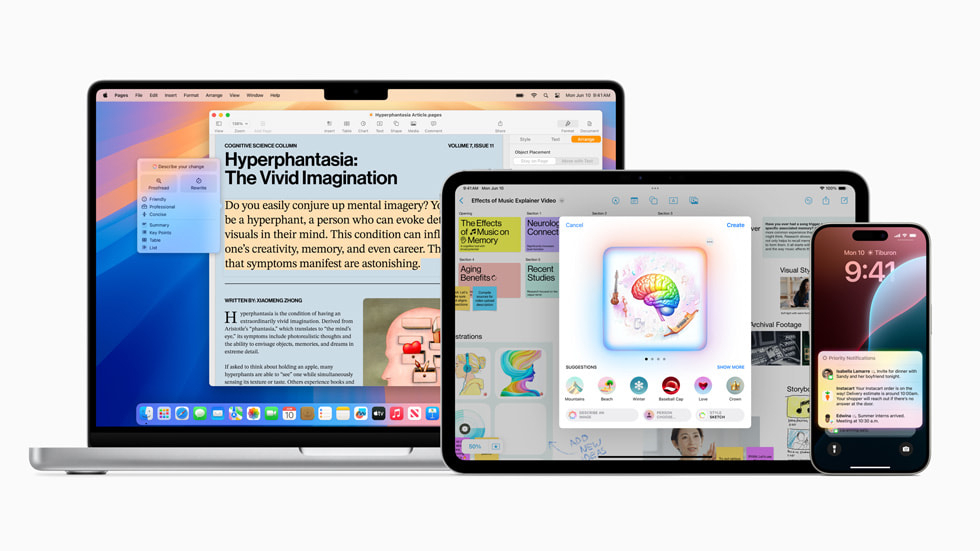SEOUL (ANN/THE KOREA HERALD) – Months following Samsung Electronics’ introduction of the world’s inaugural artificial intelligence smartphone featuring its unique Galaxy AI, Apple subsequently unveiled its own Apple Intelligence.
However, Apple’s debut failed to demonstrate any significant advantage that would set it apart from its competitors.
During Monday’s Worldwide Developers Conference, Apple introduced Apple Intelligence, its AI system set to integrate across a range of products from iPhones to MacBooks.
“At Apple, our approach merges generative AI with a user’s personal context to provide genuinely useful intelligence. It operates securely and privately, enabling users to accomplish what matters most to them,” remarked Apple CEO Tim Cook at the event held in Cupertino, California.
“This is AI as only Apple can deliver it, and we can’t wait for users to experience what it can do.”
Backed by Apple Intelligence, Apple’s upcoming devices are expected to come with new features such as the ability to summarise notes, text messages and emails.
Image Playground is its new AI-powered image creation tool, while Genmoji will also be introduced to allow users to create original emojis to express themselves.
Similar AI tools, however, have already been introduced by other global players who preceded Apple in the AI scene — Samsung’s Galaxy AI and Google’s Gemini.
Apple’s voice assistant feature Siri will get an upgrade, pairing up with OpenAI to utilise the generative AI chatbot ChatGPT-4o to better answer user’s queries, according to the tech giant.
Craig Federighi, Apple senior vice president of software engineering, underscored that Apple Intelligence is not designed with the “typical approach” to AI, but to build “a personal intelligence model” that “draws on personal context.”

Apple Intelligence will better understand the personal context of a user by quickly searching through the data in a device, such as emails and texts, and will be able to answer questions like, “When is my mom’s flight landing?”
It also presented a set of AI features for devices other than smartphones, such as the Apple Pencil and Apple Watch. From the second generation of the Apple Pencil Pro onward, it will smooth out users’ handwriting and complete maths equations the user writes.
As far as Apple’s latest announcement goes, Apple Intelligence features will be available for users of models beginning with the iPhone 15 Pro launched just last year, as well as iPads and Mac computers with the M-series chipset starting this fall.
Samsung has been releasing software updates to allow its AI features to be accessible on its flagship smartphones launched since 2022.
With the market’s high anticipation for the latecomer to the AI race, Apple’s rather underwhelming unveiling did not help its shares go up. On Monday, the company’s stock price closed at USD193.12, edging down by about 1.91 per cent.
Ahead of Apple’s unveiling of Apple Intelligence, Samsung took a direct shot at its US rival in a series of Galaxy AI ads.
In one video highlighting the Night Mode feature of the Galaxy smartphone using the AI-based Pro Visual Engine, Samsung filled the screen with the phrase, “Dare you to zoom into the dark without a Galaxy,” asking, “Can your Apple do this?”
Samsung introduced its Galaxy AI for the first time in January this year in its flagship Galaxy S24 series. With Google, it introduced the new search feature Circle to Search, as well as a real-time call translation feature, which Apple is also expected to present later this year.


